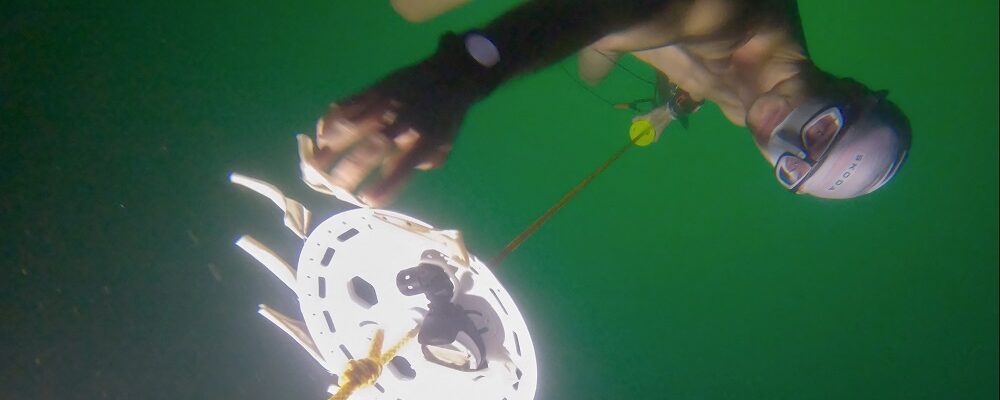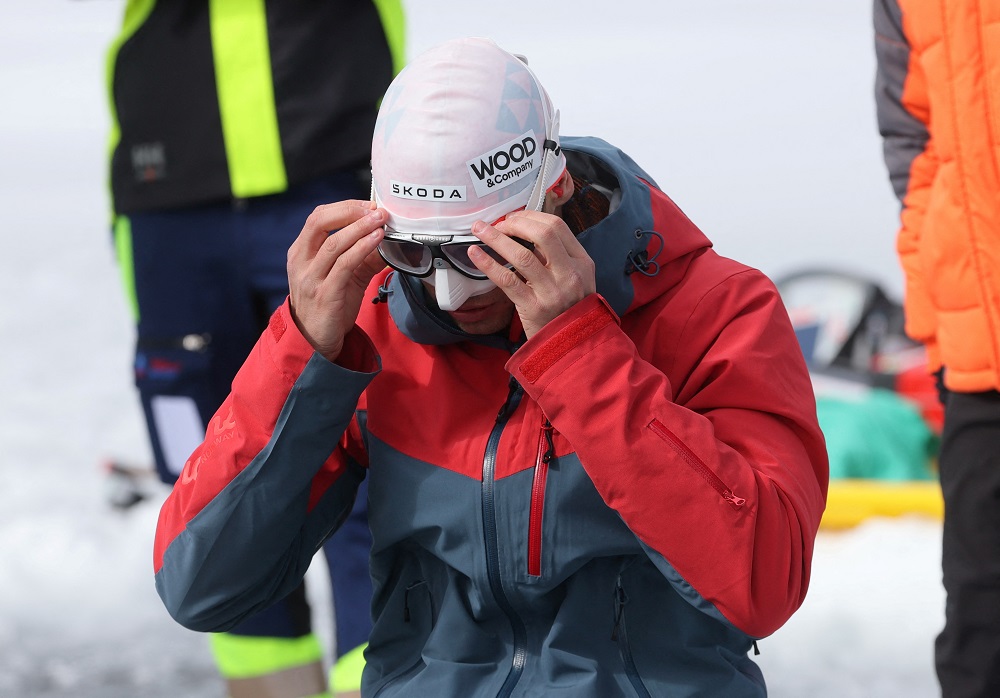

LAKE SILS, Switzerland (Reuters)
David Vencl emerged from the depths of Switzerland’s Lake Sils today (March 14) after a record dive beneath the ice to a depth of more than 50 metres without a wetsuit.
The 40-year-old Czech diver’s record vertical plunge to 52.1 metres in a single breath follows his entry into the Guinness World Records book for swimming the length of a frozen Czech lake in 2021.

Vencl dived through a hole in the ice then retrieved a sticker from a depth of 50 metres to prove his feat before re-emerging through the same hole. He spat some blood, sat down for a minute and then opened a bottle of champagne. A later visit to the hospital confirmed there was nothing serious.
The Swiss plunge in temperatures of between one and four degrees Celsius took him one minute 54 seconds, his promoter Pavel Kalous said, which was a bit slower than expected.
“He kind of enjoyed it but he admits he was a little more nervous than usual and he had some problems with breathing,” he told Reuters.

“There is nothing difficult for him to be in cold water… . Lack of oxygen is something normal for him. But this was completely different because it’s really difficult to work with the pressure in your ears in cold water,” he added.
“If you combine all these three things: cold water, lack of oxygen and the problem with working with pressure, it’s something very unique,” he added.







Comments